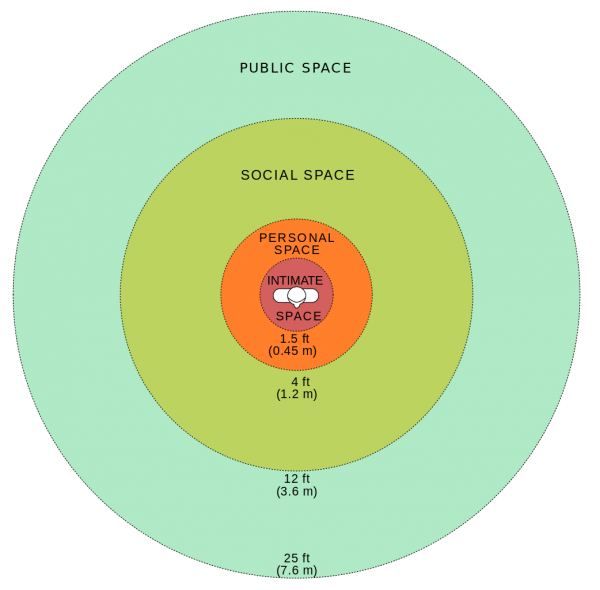
Image via NBC.
When you’re a kid, personal space just isn’t a thing. You cling to legs, bodies and arms, and snuggle in between adults on the couch. The mere concept of being too close to someone doesn’t really cross your mind.
Then, as we grow up, space becomes a little more… present. You start to feel it more. There are those friends or co-workers who lean in a little too close to your face when they’re talking; crowds, dancefloors and queues are incredibly stressful; and even our own family members can invade personal space.
Or maybe that's just me. I have to wonder — how do we know where personal space begins and ends? When am I being reasonable about my problem with personal space, and when do I need to just suck it up?
Scientists at the University College London carried out a study in 2013 that explored the two main kinds of personal space. The is called peripersonal space, which is the space that is close to us. The second is called defensive peripersonal space (DDPS), which is how we perceive incoming threats.
RELATED: Five coping mechanisms for antisocials
The study showed the more anxious someone is, the more personal space they need. I will testify to this. I'm a naturally anxious person, and I like my space. I can't stand it when someone I don't really know touches me by accident. If someone in an empty cinema sits to close to me, I am tempted to get up to move. Even cooking in the kitchen at the same time as someone makes my skin crawl. I know, I am completely ridiculous.
We imagine these famous misanthropes appreciate their personal space. (Post continues after gallery.)
Our favourite antisocial TV characters





























































































